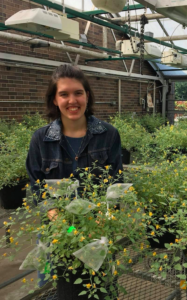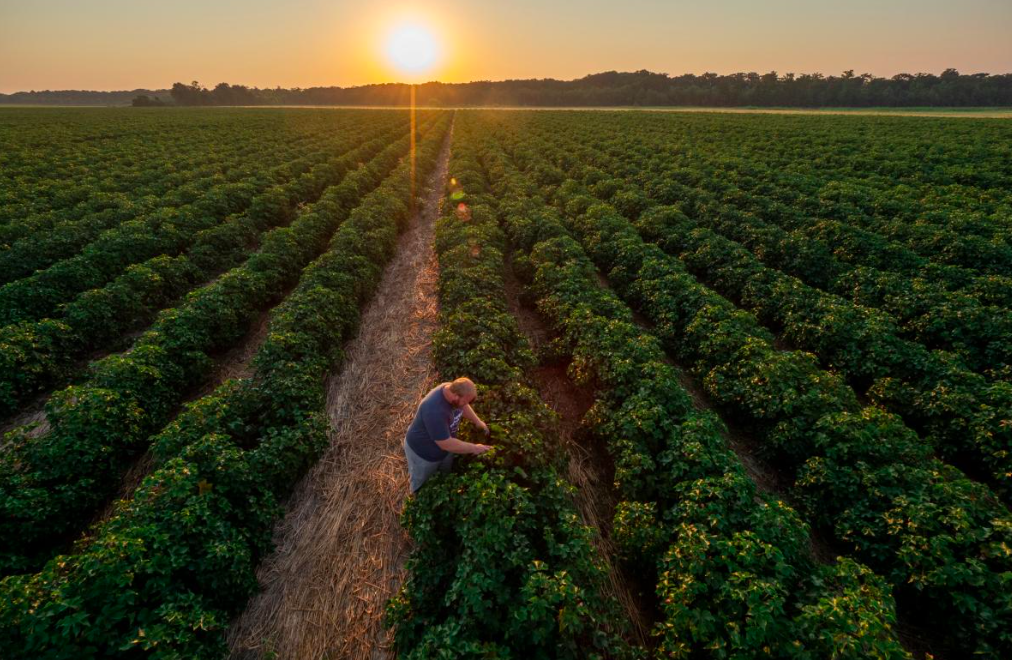Mira Rauch is a fourth-year undergraduate student studying Environmental Science with a concentration in conservation science and a minor in East Asian Studies. In Spring of 2020, she began a co-op at Indigo Agriculture. We reached out to hear about her experience.
Could you tell us about your co-op journey?
“I’m currently on my third co-op, but during my second co-op, the pandemic hit and it changed the course of that co-op when everything seemed to turn upside down. I started at the university as a Biology major and that was fun, but during my second year, I realized that was not what I was interested in pursuing. Following my first co-op in quality control at Alnylum Pharmaceuticals, I switched my major to Environmental Science and found my next co-op at Indigo Agriculture in Charlestown as a field scientist. I did a little bit of lab work but most of my co-op was on the computer doing biostatistics in analysis and some management. I worked with seeds that were coated in a special substance containing microbes—I always called it “yogurt for plants”. We would coat seeds in microbes that we knew they liked in order to be able to grow 10% more cotton or corn or 20% more wheat in places that were colder or had a dryer season than usual. My job was to manage the scientific trials to figure out where different microbes worked the best and on which crops they had the best results. I also ran the soil sampling program and did lab work during the pandemic. My current job is at MIT Energy Initiative where I am the graduate education assistant helping to write content for the energy-based master’s program. I’ve always sought to try different things with my co-ops and I think that has worked out for me.”
What did a regular day of work at Indigo Agriculture look like for you before COVID-19?
“There were about 10 people on my field sciences team and I was the team’s first co-op. I began work each day at 9 am and really enjoyed the interconnected workplace culture. I was  at the end of the pipeline where I tested the microbes in real world settings.. My manager and I would check in twice a week for about an hour and he would assign me projects, most were long term and lasted from a week to a month. Most of our work since I began in January was looking at the previous seasons to analyze and make decisions about planting for the coming season since they would have to start planting again in March. We had 25-30 co-ops across the teams which was great. We would all have lunch together, hang out, get coffee together. We also had all hands meetings where the entire company would get together and leadership would field questions from all of us. I learned that when working in a biotech company, you are the pioneer of your product and the pioneer of what you’re working with.”
at the end of the pipeline where I tested the microbes in real world settings.. My manager and I would check in twice a week for about an hour and he would assign me projects, most were long term and lasted from a week to a month. Most of our work since I began in January was looking at the previous seasons to analyze and make decisions about planting for the coming season since they would have to start planting again in March. We had 25-30 co-ops across the teams which was great. We would all have lunch together, hang out, get coffee together. We also had all hands meetings where the entire company would get together and leadership would field questions from all of us. I learned that when working in a biotech company, you are the pioneer of your product and the pioneer of what you’re working with.”
What did a regular day of work look like for you after COVID-19?
“In March we were getting ready to start shipping out for the spring planting season which is arguably the most important time for an agriculture company. We had to make sure everything was running like a well-oiled machine. We got an email from the CEO saying we had to work from home tomorrow. We thought it was going to be a week, maybe two weeks, and then everything would be back to normal. I grabbed just two things from my workspace and never went back. Fortunately, our team was familiar with zoom because we already had remote employees. My manager and I didn’t have a check in call for about a month because things were so turned around. To keep our spirits up, and remain connected, we did fun weekly questions on our Slack channel where we would ask and answer random questions like ‘what does your desk look like?’
How did COVID-19 impact your work?
“I ran our soil sampling project from my home which meant I got FedEx shipments of envelopes and had to hand write two hundred labels onto bags with QR codes that were registered to my house. Indigo extended my co-op through August and I was assigned a project where I took the wheat that we harvested from the past season and I placed it into a little instrument that would tell me how many carbs, oil, and protein it contained. In July I went back to the Indigo lab which was felt bizarre. We had to wear masks all day, complete a Wellness Check similar to the one Northeastern uses, and all snacks were made to be individually packaged. Only science teams were allowed to return, so we would each have our own lab bench and no more than two or three people in the same room.”
What were your work expectations and how did that change over time?
“One of the work expectations I had when I started was traveling for work. That clearly did not happen and was cancelled early on. It was heartbreaking because I was really looking forward to some sort of travel element in my second co-op. Instead, we did a lot of zoom calls to try and keep business moving forward from afar. I also expected to be able to spend more time with the other co-ops but once we went remote, it was really hard to stay connected.”
How do you think this experience is going to help your plans for the future? What lessons did you take away from this experience?
“I learned that I value having time at home and I would really consider taking a job where there is a hybrid opportunity, even after the global pandemic is over. I like to spend time with my pets and make a warm lunch instead of having to pack a cold one. In the future if I had the space to have a home office, I would absolutely take the chance to work at home two or three times a week. Additionally, I saw the importance of team communication more now than ever before. During my first week at Indigo I had to attend a one-on-one meetings for thirty minutes where I learned what my teammate did for work, what my role would be and then share what I hoped to get out of this experience and it was so helpful. I think it was so important to have this casual conversation over coffee and I think it’s worth it to push your employer or team to facilitate connection because it is very isolating to work from home. At the end of the day, we are all people who stare at the computer all day so it’s important to emphasize our other passions and activities.”
Is there anything you learned from your last co-op that you could apply to your current co-op?
“Definitely virtual coffee, I think that’s for everyone. I know it feels awkward, but tell your manager and make one on one appointments to get to know everyone on the team. Lean into the discomfort of not having water cooler talk. Secondly, something I wish I could give to every single co-op who is nervous is confidence. When I entered my first and second co-op, I was acutely aware that I know less than every single person I work with and that’s okay, but over time at Indigo my team would ask me questions and lift me up. It was really enriching to feel like my opinions mattered even though I was a co-op. Also, if you are the new person, you should lean into being the new person. Ask plenty of questions because you’re new and you’re not expected to know everything. If you’re really embarrassed, throw in “I’m taking a class on this next semester but we haven’t gotten there yet, can you walk through this with me?” and they’re going to love it. Lastly, write down everything you do at co-op so you can add it to your resume later on. Keep a notebook so you have a list for reference in the future.”

